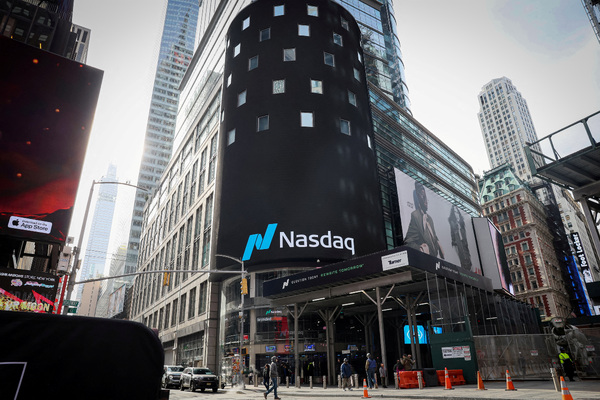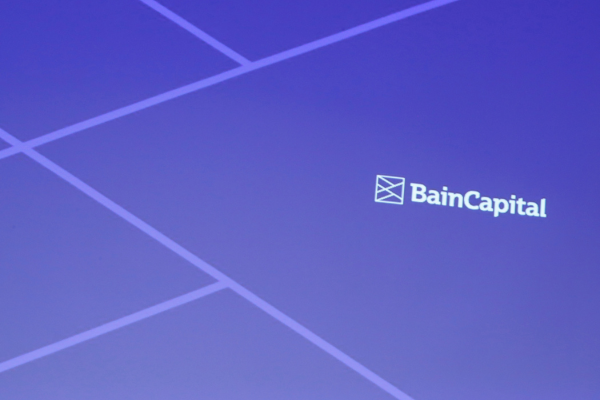How technology can unlock investor interest

Paul White at Quantios explains why technology investment is vital for companies considering a sale
The wealth, trust and corporate services sector is awash with mergers and acquisitions (M&A). Yet, it’s no secret that the M&A market declined in 2023 and has continued on a similar trajectory this year. In fact, earlier this year, a collapse in deal flow, meant only nine disclosed M&A transactions took place, representing a decline of 50% in activity. The valuation gap between what buyers wanted to spend and what sellers want to charge for their companies has and will continue to keep many would-be deals from happening.
But in a tough environment of uncertainty, high interest rates, mixed macroeconomic signals, regulatory scrutiny and geopolitical risks, companies are finding that they can no longer hold off on deals. It’s simply down to the businesses to showcase how they can create value if they’re looking to land the best deal. And technology has become key to that.
Savvy acquirers are looking for targets with a robust technology framework and evidence that business critical infrastructure has been invested in. Failing to prove this can ring alarm bells for investors as it indicates it’s a high-risk deal, which will likely need a phase of renewal post-acquisition. For the target in question, this can mean the transaction value will be priced lower in accordance.
The market’s growing increasingly competitive and enterprise value (EV) deals are under more scrutiny than ever before, meaning it’s crucial for investors to be convinced a business is using newer software to not only be compliant but also profitable.
After all, who wants to invest in outdated processes and systems, when they could go for a well-oiled, modern machine?
Short-changing future investment
Technology no longer powers businesses; it is the business. From the growing use of AI and admin software to the varying communications platforms and the very hardware you’re using to read this article, tech is the lifeblood of any business.
Yet, six in 10 executives say it’s difficult to quantify the benefits of individual technology investments. As a result, tech spending is often perceived as overly complex and too costly, which can lead to more tech budget scrutiny and older systems running the shop. Indeed, leaders always have one eye on maximising shareholder value, ensuring operational expenses are low, revenues and margins are high, and assets are being sweated.
However, technology is constantly advancing. Legacy systems do not. Neglecting tech investment can be a deal-breaker. While focusing on short-term financial metrics might seem tempting, it creates a long-term risk. Put simply, sticking with older systems doesn’t increase value, it slashes it. Why? Because old technology is a huge risk.
Keeping those systems up and running can be a costly process, with 60-80 per cent of IT budgets being allocated to it. These ongoing maintenance costs eat into potential profits, hinder productivity and increase labour costs. Furthermore, manual processes and clunky interfaces slow down operations, eroding the bottom line. Outdated systems are also prime targets for cybercriminals, where older Windows server OS versions are 77 per cent more likely to experience attack attempts. And cyberattacks can result in damaging a business’ credibility with clients and potential investors.
More importantly, outdated systems lack the scalability and flexibility to manage and maintain large amounts of data, something that’s crucial for everything from personalised investment strategies to regulatory compliance. Failing to adapt can have serious consequences. Regulatory bodies are constantly evolving their data protection standards too, and non-compliance can result in hefty fines, reputational damage and restrictions on business activities. None of which is a good look before a potential sale.
To maximise value, investors must be assured a business is using newer software to offer confidence of compliance. They also want to see recognised, well-established systems in place, rather than home-grown solutions which may not integrate with other businesses after acquisition. Therefore, if you’re looking to secure investors, you need to invest in the right solutions first.
Building a strong foundation
The key to unlocking significant value lies in a strategic, step-by-step approach. Embracing digital transformation is essential for companies looking to sell down the line or to remain profitable in a competitive landscape. Yet, the path to digital transformation doesn’t require a massive overhaul, it’s about establishing a strong foundation with clear priorities and a focus on core functionalities. As the saying goes, ‘Work smarter, not harder.’
Therefore, start with a comprehensive IT transformation audit to get a clear picture of your existing technology infrastructure. It highlights gaps and prioritises areas for improvement, ensuring your investment is targeted and impactful.
Moreover, digital transformation should be seen as an investment in long-term efficiency, not a cost. For those looking for external expertise, businesses can outsource core IT functions to trusted providers to help further streamline day-to-day operations and free up internal resources in the long run. This approach not only enhances operational efficiency but also positions your business as a more attractive target for potential investors.
Head for the clouds
Based on an IT audit, the next step is making sure you have the necessary technology and infrastructure in place to adapt to market and regulatory changes.
A cloud-based data management platform can provide the perfect way to upgrade any legacy systems, ready for you to strike the best deals. By doing this, you can invest in a singular platform, rather than multiple solutions, which allows you to bypass several rounds of integration and a plethora of vendors, as well as reduce associated costs and minimise operational risks.
The world is constantly evolving and so are the needs – and the demographic – of clients. Millennials are on course to become the “richest generation in history,” yet many firms in the wealth, trust and corporate services sector are failing to capitalise on this vital age group. In fact, they are far more likely (49 per cent) than the global average (33 per cent) to have sought independent professional advice but are also 59 per cent more likely to seek a wealth manager that continuously improves its digital platforms with feature enhancements.
Put simply, modern clients expect seamless access to their data and tools. And centralised cloud platforms and systems offer exactly that, complete with a multitude of benefits such as efficient data management, continuous upgrades and updates and robust security features.
Compliance is a dealbreaker
Having scattered data across spreadsheets, legacy systems and disconnected databases creates a compliance nightmare. However, with a centralised system in place, any business can then go on to handle all the red tape that comes with an M&A. Compliance will always be a significant hurdle to overcome. So, rather than clamouring helplessly over the hurdle, a data platform that acts as a ‘single source of truth’ will instead help you glide seamlessly over it.
It creates new levels of transparency, accuracy and control which is crucial, not only for regulatory compliance, but also for attracting potential clients and of course, potential investors. A firm that demonstrates a commitment to data security and responsible data management instantly becomes a more attractive acquisition target.
But more importantly, it can help highlight areas where profitability suffers. A centralised data system can help you discover clients with outdated fee structures or high servicing costs, allowing you to renegotiate terms and focus on high-value clients to significantly improve overall profitability.
Additionally, investors have shifted focus from growth at any cost to rewarding profitability, and automation that’s often embedded with the right system offers a way to expand margins and boost productivity – all while managing the costs of growth.
Data entry, report generation and compliance checks can all be handled automatically, eliminating low-value work and allowing you to boost productivity and expand margins. It also ensures that everyone in your firm is working with the same accurate and up-to-date information, helping you avoid any compliance issues.
Investing in the future
There’s an old adage that rings true, ‘Companies are bought, not sold.’
However, to fetch a premium valuation, firms must demonstrate not just financial strength but also a commitment to the future. In fact, when buyers value a business, they look under the bonnet for tech investment of about 6 to 8 per cent of revenue. Less than this is a red flag, particularly around growing regulatory requirements, as it simply illustrates a short-term mindset, a lack of an IT strategy and an overreliance on legacy systems.
Indeed, modernising technology is an investment, not a cost. By prioritising investment, any business can transform itself into a highly attractive acquisition target and position itself for a lucrative exit. To an investor, this isn’t just about maximising a sale, it’s about building a future-proof business, poised for sustainable growth and exceptional client service. So, if you’re looking to secure the best deal, well, you best invest in the right tech.
Paul White is Chief Marketing Officer at Quantios, the wealth, trust and corporate services software expert
Main image courtesy of iStockPhoto.com

Business Reporter Team
Related Articles
Most Viewed
Winston House, 3rd Floor, Units 306-309, 2-4 Dollis Park, London, N3 1HF
23-29 Hendon Lane, London, N3 1RT
020 8349 4363
© 2024, Lyonsdown Limited. Business Reporter® is a registered trademark of Lyonsdown Ltd. VAT registration number: 830519543





